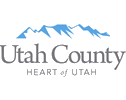
Greenbelt
The Utah Farmland Assessment Act, often referred to as the "Greenbelt" law, is a law passed by the State
of Utah in 1969. Prior to 1969, Utah farmland was assessed and taxed according to its market value. However,
as Utah population centers began to expand into the surrounding agricultural property, the market value of
agricultural property began to rise. This increased market value produced property taxes that made some farming
operations economically prohibitive. In 1969, the Utah Legislature passed the Utah Farmland Assessment Act,
which provided for qualified agricultural property to be assessed and taxed on its productive value instead
of its market value. The Farmland Assessment Act is found in the following body of Utah State Law:
When a piece of real property is determined by the County Assessor's office as no longer qualifying for assessment
under the FFA "Greenbelt" law, the Assessor is required to apply a rollback tax to the property. Land that is
withdrawn from assessment under the FAA is subject to a rollback tax equal to the difference between:
- the amount of taxes that would have been charged under a market-based assessment, and
- the amount of taxes that were actually charged under the FAA assessment.
Once a property has been withdrawn from "Greenbelt" status, the Assessor calculates the rollback tax for each year
the land was assessed under the FAA, going back no more than five years.
The Board of Equalization hears appeals from property owners who feel the Assessor's office incorrectly withdrew
their property from Greenbelt and assessed the rollback tax. Individuals who receive a notice of Greenbelt
Rollback Billing and Withdrawal from Farmland Assessment Act will have 45 days to appeal the rollback from the
date of the notice. Individuals with questions about the Farmland Assessment Act, appealing a rollback tax, or
what the requirement for “Greenbelt” status is, contact Diane Garcia in the Utah County Assessor's
office at 801-851-8288 or dianeg@utahcounty.gov.
Greenbelt Rollback Appeal Form
Please note the correct mailing address listed on the Greenbelt Rollback Appeal Form.
Urban Farming
Small-scale urban farming has become more common in recent years a result of rapidly increasing
population growth and urban development throughout Utah. In addition, only 3% of fruit and 2% of
vegetables needed to sustain the population are locally produced and small-scale urban agriculture
plays a vital role in the local food system (Kurtz, J.E. et al., 2020). The Urban Farming Act was
established in 2012 to help small-acreage property owners receive a tax benefit for cultivating
food and other marketable crops. The Urban Farming Assessment Act is found in the following body
of Utah State Law:
When a piece of real property is determined by the County Assessor's office as no longer qualifying for assessment
under the FFA "Urban Farming" law, the Assessor is required to apply a rollback tax to the property. Land that is
withdrawn from assessment under the FAA is subject to a rollback tax equal to the difference between:
- the amount of taxes that would have been charged under a market-based assessment, and
- the amount of taxes that were actually charged under the FAA assessment.
Once a property has been withdrawn from "Urban Farming" status, the Assessor calculates the rollback tax for each year
the land was assessed under the FAA, going back no more than five years.
The Board of Equalization hears appeals from property owners who feel the Assessor's office incorrectly withdrew
their property from Urban Farming and assessed the rollback tax. Individuals who receive a notice of Urban Farming
Rollback Billing and Withdrawal from Farmland Assessment Act will have 45 days to appeal the rollback from the
date of the notice. Individuals with questions about the Farmland Assessment Act, appealing a rollback tax, or
what the requirement for “Urban Farming” status is, contact Diane Garcia in the Utah County Assessor's
office at 801-851-8288 or dianeg@utahcounty.gov.

